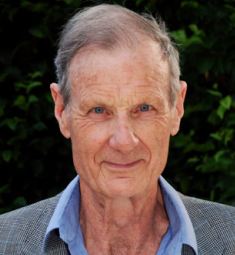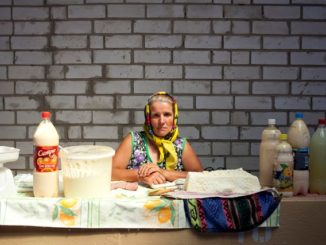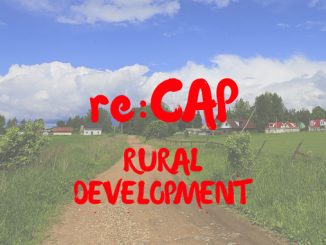The CAP debate in Brussels: An inside view by Michael Dower
 For the last year, ARC has been calling for the CAP post 2013 to be focused on a Paradigm shift in agriculture and a Rural Renaissance. We urged that the current second pillar of the CAP, which contains the rural development measures, should be succeeded by a true Rural Policy, and that this Policy should have a strong element of local delivery, building upon the LEADER experience but able to draw down funds not only from the CAP but also from the Regional, Social and Fisheries funds of the EU.
For the last year, ARC has been calling for the CAP post 2013 to be focused on a Paradigm shift in agriculture and a Rural Renaissance. We urged that the current second pillar of the CAP, which contains the rural development measures, should be succeeded by a true Rural Policy, and that this Policy should have a strong element of local delivery, building upon the LEADER experience but able to draw down funds not only from the CAP but also from the Regional, Social and Fisheries funds of the EU.
So, we were delighted when, in August last year, the Commissioners for Agriculture, Regions, Employment and Fisheries wrote a joint letter to the President of the Commission proposing that, from 2014 onwards, there should be a joint strategic framework for the rural, regional, cohesion, social and fisheries funds. In the ARC Communication, published in November 2010, we suggested how this link between the main developmental funds of the EU could be achieved at EU, national, regional and local level.
We now know that the Commission is thinking in the same way as us. At a Conference on 12-13 April, called by the Fisheries Directorate DG MARE, officials from the four directorates for Agriculture, Regions, Employment and Fisheries described the joint work that they are doing to clarify how the combined strategic framework proposed by the Commissioners might work in practice. They expect to propose that the principles in the framework should be reflected in harmonised Regulations for the four Funds, plus Common Guidance related to local development; that Member States should be required to produce national strate
gies with a scope parallel to that at EU Level; and that the Operational Programmes for each Fund produced at national or regional level will then reflect the integrated purpose of the national strategy.
As to local delivery, they envisage the setting up of sub-regional partnerships in all areas, whether urban or rural, which need significant developmental effort. These would incorporate the LEADER principles, but would have a wider and more flexible scope than most LEADER groups now have. Each partnership would draw up a local development strategy for its area, on an integrated basis, i.e. covering as appropriate the scope of all four Funds, linked to the national strategies and operational programmes. In implementing the local strategy, the partnership would then be able to call down funds from whichever of the four EU funds or related national funds were appropriate. The rules for deployment of the different EU funds would be harmonised. For each partnership, the EU might identify a ‘Lead Fund’, which would act as the main channel for EU funds and might provide the main continuity funding for the administration of the partnership.
Those present at the DG MARE Conference in April warmly welcomed this evidence of integrated thinking within the Commission, and the recognition by officials that a linked-up approach at EU level must be reflected at national, regional and sub-regional level if it is to achieve the effective development that so many rural (and urban) areas need. But they expressed strong concern about the willingness of Member States to take the same integrated view, and urged that means be found to persuade Member States to do so.
We urge members of the ARC Network to speak up, in their countries, for the benefits of an integrated, focused, multi-funded approach to local delivery of development efforts.
Michael Dower
Note: Presentations made at the DG MARE Conference can be found at the conference website.
Michael DOWERis a member of the Core Group of ARC.
He is a former Professor of European Rural Development at the University of Gloucestershire, England. He has served as a Coordinator of the PREPARE Partnership for Rural Europe and as President of ECOVAST, the European Council for the Village and Small Town. He has recently a lead expert for a Thematic Working Group of the European Network for Rural Development and an adviser to the Ministries of Agriculture in Romania and in Croatia on the formation of National Rural Networks in those countries.




